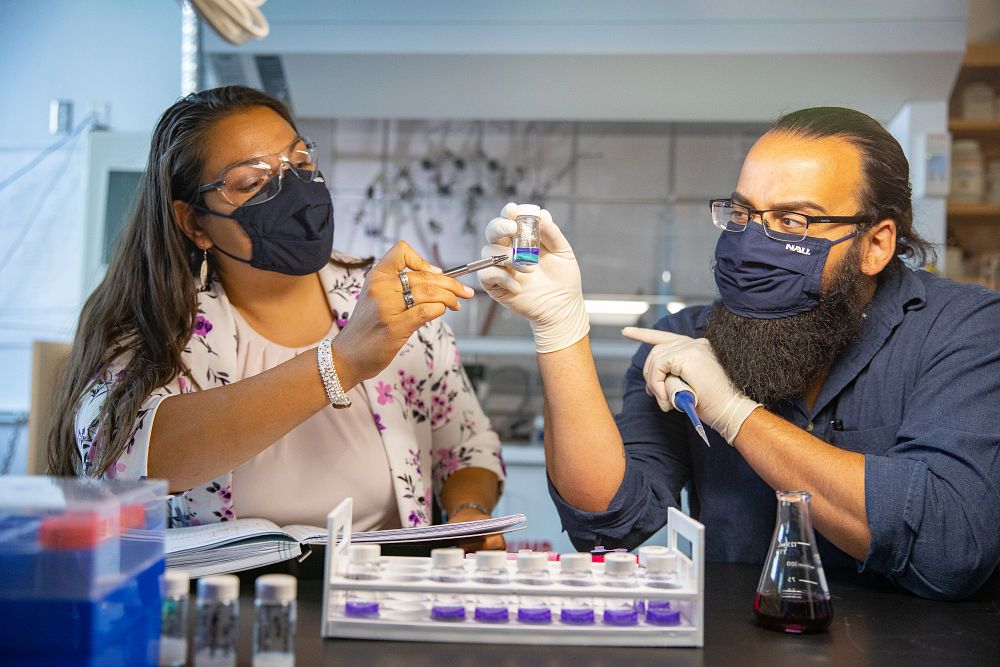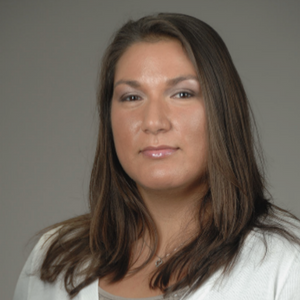*Editor’s Note: The “Views from NAU” blog series highlights the thoughts of different people affiliated with NAU, including faculty members sharing opinions or research in their areas of expertise. The views expressed reflect the authors’ own personal perspectives.
 By Naomi Lee
By Naomi Lee
Assistant professor in the Department of Chemistry and Biochemistry
Dr. Lee is from the Seneca Nation of Indians and grew up on the Cattaraugus Reservation in western New York and is an affiliated faculty member to the NIH-funded Southwest Health Equity Research Collaborative (SHERC), the NIH-funded Native American Cancer Prevention (NACP) partnership, and NAU’s Center for Materials Interfaces in Research and Applications (¡MIRA!). Her research focuses on vaccine design that targets chronic and infectious disease prevalent in Native American communities. She also is a functional specialist (FxSP) in the Army Reserves assigned to the 322nd Civil Affairs Brigade in Honolulu, Hawaii. Previously, she was a military police officer in the Arizona Army National Guard. Prior assignments include the senior training, advising and counseling officer for the National Guard Officer Candidate School Program in Santa Fe, New Mexico, and Aberdeen, Maryland.
Naomi Lee has made mentoring students, particularly students from historically underrepresented populations in the STEM fields, a priority in her work. She is the founder and co-director of the Cultural and Academic Research Experience (CARE) program, which encourages historically excluded high school students into STEM and health science careers, and on 2020, Lee received an Emerging Scholar award from for her mentorship of Native American students. For International Mentoring Day on Jan. 17, The NAU Review asked her to share why mentoring is so important for her and what she has learned.
What is mentoring to me?
When I think of mentoring, it is not one-size-fits-all. Every student requires different forms of mentoring (peer, near-peer, group, team, virtual, etc.) along with mentoring in different areas (cultural, spiritual, academic, etc.). Over the years, I have experienced both “good” and “bad” mentoring. By “bad” mentoring, it was more of an improper match between mentor and mentee. I did not know what I needed as a mentor or how to actively engage with one. However, through experience, I learned more about myself and the type of mentor I am for others.
Building my mentoring skill
I never thought I would be where I am today. I lived on the reservation nearly my entire childhood, and as a result I had no overlap with professionals in advanced careers, particularly those in the STEM and health-related fields. The lack of Native American role models continues to be a barrier for Native American students to persist in STEM. Therefore, I strive to change this story for the next generation through incorporating the teachings of my Haudenosaunee (Iroquois) ancestors into my science and mentorship. The Haudenosaunee Seventh Generation philosophy states, “In our every deliberation, we must consider the impact of our decisions on the next seven generations.” As such, my decisions and actions today are meant to cause change, not only to the current generation, but the next seven generations. Therefore, over the years, I developed my mentoring skills as both a faculty member and service member. Prior to coming to NAU, I was a senior training, advising and counseling (TAC) officer in the Army. The skills I learned from training the next generation of Army leaders are skills I bring to academia to include empathy, active listening, constructive feedback, respect, integrity and comradery.
Why is mentoring important as a faculty member?
One of my greatest pleasures as a faculty member is seeing students succeed. The students could be in my research group, classroom or others I engage with across campus am so thrilled when students tell me they obtained a scholarship, received an internship, balanced their cultural and scientific identities, received acceptance into graduate or medical school, etc. What is more fulfilling to seeing the students grow and build their confidence? Since coming to NAU, I have engaged with students from all backgrounds (racial, ethnic, sexual identity, veteran status, etc.). However, most of the students lack the self-confidence to apply to the opportunities before them. Eventually, the students learn of their capabilities through encouragement and mentoring to put themselves out there and reach for the opportunities. Many times, they do succeed!




 By Naomi Lee
By Naomi Lee